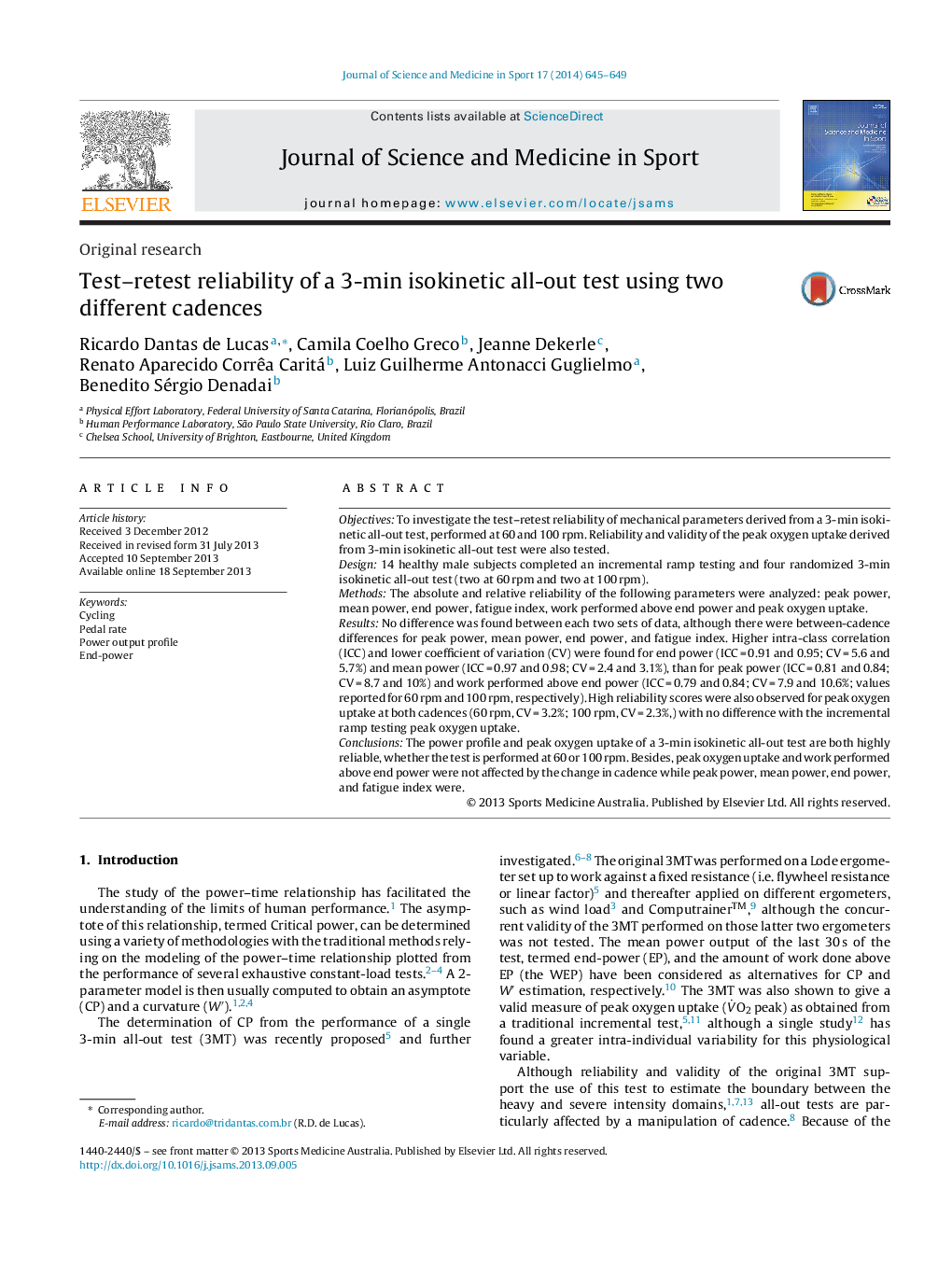| Article ID | Journal | Published Year | Pages | File Type |
|---|---|---|---|---|
| 2701420 | Journal of Science and Medicine in Sport | 2014 | 5 Pages |
ObjectivesTo investigate the test–retest reliability of mechanical parameters derived from a 3-min isokinetic all-out test, performed at 60 and 100 rpm. Reliability and validity of the peak oxygen uptake derived from 3-min isokinetic all-out test were also tested.Design14 healthy male subjects completed an incremental ramp testing and four randomized 3-min isokinetic all-out test (two at 60 rpm and two at 100 rpm).MethodsThe absolute and relative reliability of the following parameters were analyzed: peak power, mean power, end power, fatigue index, work performed above end power and peak oxygen uptake.ResultsNo difference was found between each two sets of data, although there were between-cadence differences for peak power, mean power, end power, and fatigue index. Higher intra-class correlation (ICC) and lower coefficient of variation (CV) were found for end power (ICC = 0.91 and 0.95; CV = 5.6 and 5.7%) and mean power (ICC = 0.97 and 0.98; CV = 2.4 and 3.1%), than for peak power (ICC = 0.81 and 0.84; CV = 8.7 and 10%) and work performed above end power (ICC = 0.79 and 0.84; CV = 7.9 and 10.6%; values reported for 60 rpm and 100 rpm, respectively). High reliability scores were also observed for peak oxygen uptake at both cadences (60 rpm, CV = 3.2%; 100 rpm, CV = 2.3%,) with no difference with the incremental ramp testing peak oxygen uptake.ConclusionsThe power profile and peak oxygen uptake of a 3-min isokinetic all-out test are both highly reliable, whether the test is performed at 60 or 100 rpm. Besides, peak oxygen uptake and work performed above end power were not affected by the change in cadence while peak power, mean power, end power, and fatigue index were.
